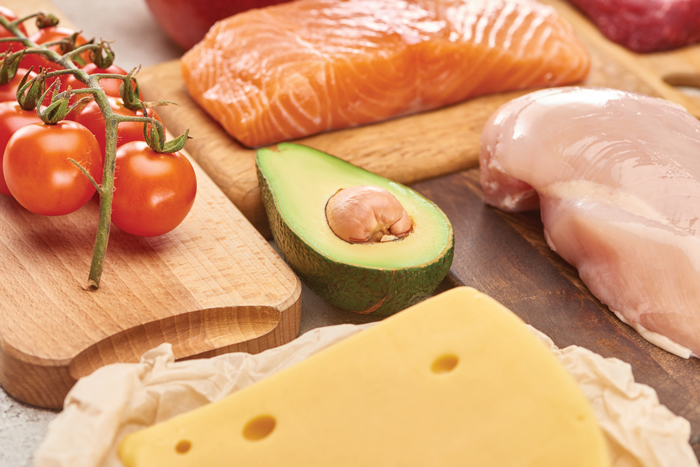We all know that nutrition is important to good health, but maintaining a balanced diet is far more important for an athlete. From a sports point of view, there is a diet related to workouts and general nutrition. It refers to nutritional needs pre-workout, during a workout and post-workout. It is primarily about consumption of fluids and carbohydrate calories and a little bit about sodium. Moreover, caloric mix and quality, vitamins, minerals and other nutrients have important roles to play in general or overall nutrition.
Pre-Workout
For basal metabolism and exercise associated with warming up, your body may use 250 calories per hour. Ingesting this amount of caloric energy in the hours before your workout may allow you to keep glycogen levels in both the liver and muscles high and prevent lowering of blood sugar levels at the start. For multi-hour events in conditions of heat and humidity, consume salty foods, and sodium-rich solutions and gels. Sodium helps you retain more of the fluid you take in, which is lost through sweating. This increases your blood plasma volume, reducing strain on your cardiovascular system as it works to send oxygen to your muscles and cool your body down.
An athlete needs quality carbs, lean protein, heart-healthy fats and fluids. For quick energy, our muscles rely on carbohydrate foods like breads, cereals, pasta, rice, fruits and vegetables. We need protein for muscle growth and for the blood cells which bring nutrients and oxygen to your muscles. In addition to food, keeping your body hydrated is essential. The American College of Sports Medicine (ACSM) suggests drinking beverages at a slow pace at least four hours before exercise. If you don’t produce urine or your urine is dark or concentrated, you should drink slightly more about two hours before exercise. Moreover, a snack rich in sodium keeps you hydrated for a longer time.
Besides natural intakes, some coaches also suggest use of supplements like creatine, caffeine, BCAAs (branched-chain amino acids) and beta-alanine (non-essential amino acid) before exercise, both playing a role in muscle performance and endurance. Many pre-workout supplements combine multiple different ingredients to provide optimal benefits.
During a Workout
Appropriate nutrition during your workout primarily depends on how long it has been since your last meal and the length/type of exercise you’re planning to do. In any event, your main focus must be hydration. Sports drinks are a modern day solution as they contain electrolytes that help speed hydration and recovery and these effects also last for two hours. Moreover, for muscle-gaining exercise, a protein and carbohydrate-rich drink or some EAAs (essential amino acids) during training could also prove beneficial.
Post-Workout
When it comes to re-fueling your body, the sooner the better – during exercise is best. First and foremost, consume water and electrolytes post-workout to replace what was lost through sweating during exercise. For most people who exercise regularly, ingesting at least 50 grams of carbohydrate (200 calories) within the first 30 minutes after exercise and again every hour for the next three hours up to caloric deficit is suitable. Post-exercise mood may be better with whole food or mixed-source caloric drinks (carbohydrate, protein and fat) than with carbohydrate-only fluids.
 During prolonged exercise, minerals are lost in sweat creating the potential for deficiencies. Your muscles use up their glycogen – a stored form of sugar and the body’s preferred fuel source – especially during high-intensity workouts. This results in your muscles being partially depleted of glycogen. Some of the proteins in your muscles can also be broken down and damaged. In order to overcome lack of power inside you, it is important to:
During prolonged exercise, minerals are lost in sweat creating the potential for deficiencies. Your muscles use up their glycogen – a stored form of sugar and the body’s preferred fuel source – especially during high-intensity workouts. This results in your muscles being partially depleted of glycogen. Some of the proteins in your muscles can also be broken down and damaged. In order to overcome lack of power inside you, it is important to:
▸ decrease muscle protein breakdown
▸ increase muscle protein synthesis (growth)
▸ restore glycogen stores
▸ enhance recovery
Each macronutrient – protein, carbs and fat – is involved in your body’s post-workout recovery process. That’s why the right combination of nutrients is important. Consuming an adequate amount of protein post-workout gives your body the amino acids it needs to repair and rebuild these proteins. It also gives you the building blocks required to build new muscle tissue.
Moreover, if you are engaged in high-endurance sports like cycling or swimming, you might need to consume more carbs than someone engaging in weightlifting. Therefore, a beneficial combination of carbs, proteins and fat to consume post-workout includes grilled chicken with roasted vegetables and rice, an egg omelet with avocado spread on whole-grain toast, or a protein shake and a banana, etc.
The timing of your post-workout meal matters a lot. In this context, experts recommend eating your post-workout meal within 45 minutes, as a delay of carb consumption by as little as two hours after a workout may lead to as much as 50% lower rates of glycogen synthesis.
Peak fitness may be achieved through a combination of exercise and a diet plan consisting of nutritional elements that are optimal for consumption before, during and after breaking a sweat. In order to achieve new heights in your exercise routine, it is recommended that you consume a balanced diet under the instruction and guidance of your fitness coach.














